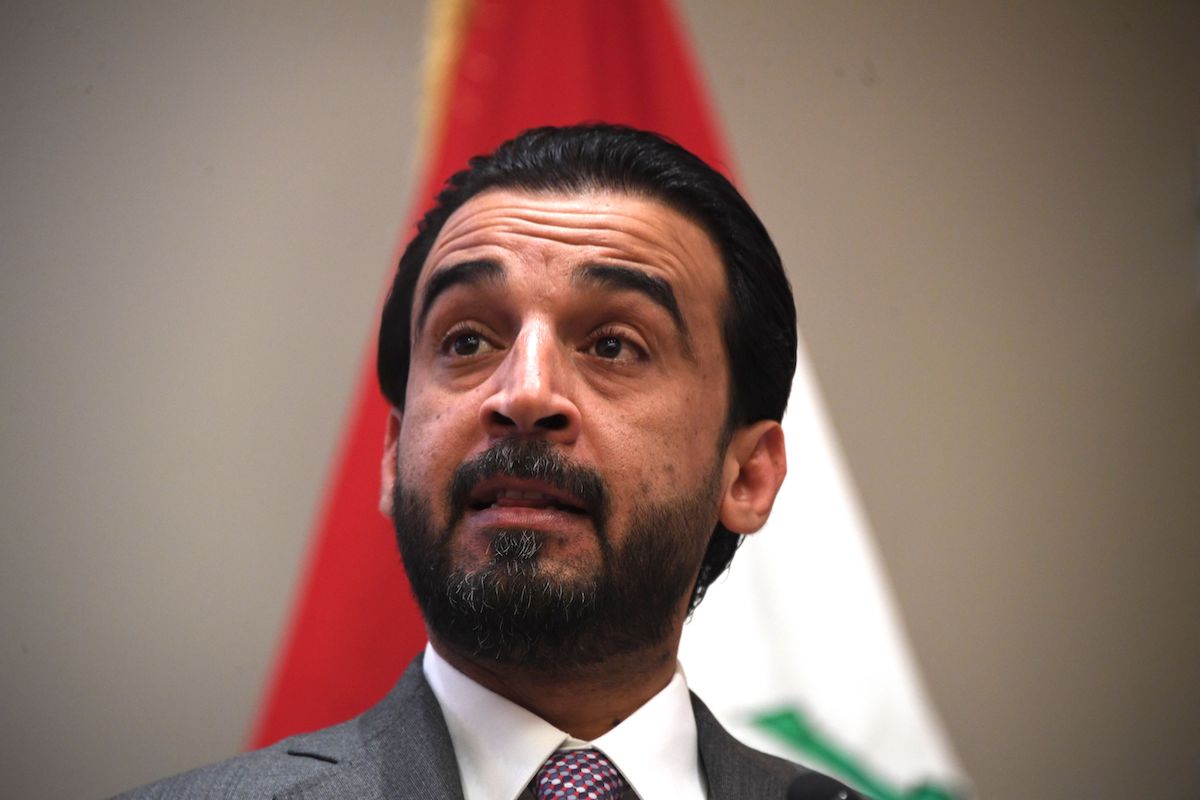The Federal Supreme Court’s ruling on Tuesday on the country’s most powerful Sunni politician is final and not subject to appeal, according to state media.
The court said in a statement that it decided to terminate al-Halbousi’s membership in parliament along with that of lawmaker Laith al-Dulaimi. It did not elaborate on why it issued the decision.
In a video shared by his media office, al-Halbousi stated: “We are surprised by the issuance of such decisions. We are surprised by their lack of respect for the constitution.”
He added that in his five years as speaker, he had operated with integrity and “never discriminated” between Sunni and Shia Muslims.
The ministers of culture, planning and industry handed in their resignations to protest what they said was the “targeting” of al-Halbousi.
The trio said they saw “a flagrant violation of the constitution” in the court’s decision to oust him, according to a statement from al-Halbousi’s Progress Party.
The court’s decision was related to a case brought against al-Halbousi this year by the same court, state media reported without elaborating, according to the Reuters news agency.
Lawmakers had gathered for a regular parliamentary session, and al-Halbousi was in the chamber at the time the decision was issued but then exited, independent Iraqi lawmaker Amer al-Fayez told Reuters.
Al-Halbousi, a former governor of Anbar province, was elected speaker in 2018. He was 37 at the time and the youngest speaker of Parliament in Iraq’s history. He was re-elected in 2022 for a second term.
He has been the highest Sunni official in Iraq. Under the country’s sectarian power-sharing system, the parliament speaker is always Sunni, the prime minister Shia and the president Kurdish.
Now 42, the former engineer from western Iraq who worked as a US contractor after the United States invaded in 2003, cultivated good relations with Shia Muslims and Kurds, who helped his rise to power.
However, he lost support within Iraq’s ruling Shia alliance, the Coordination Framework (CF), after he tried to form a government with their opponents after parliamentary elections in 2022. He ultimately joined the CF in government, but analysts said the damage was done and he was seen as untrustworthy and as having accumulated too much power due to his push to rally Sunnis, who had been politically divided since 2003, into a unified front.
The court made its decision against the backdrop of a dispute between al-Halbousi and al-Dulaimi, also Sunni. Al-Dulaimi had filed a lawsuit against al-Halbousi claiming that the speaker had forged his signature on a resignation letter, an allegation the speaker denied, The Associated Press news agency reported.
Deputy Speaker Mohsen al-Mandalawi, a Shia, will take over as interim speaker until a new head of the legislature is appointed.
The political shake-up comes ahead of Iraq’s scheduled provincial elections on December 18. Polls for provincial councils last took place a decade ago.
